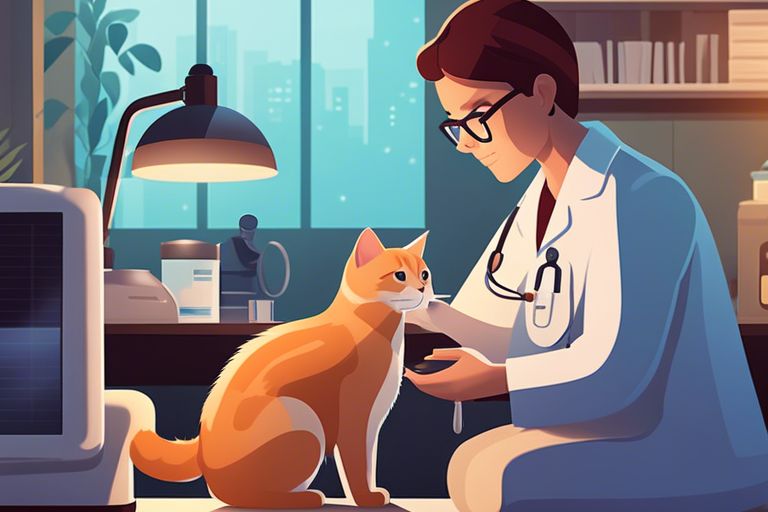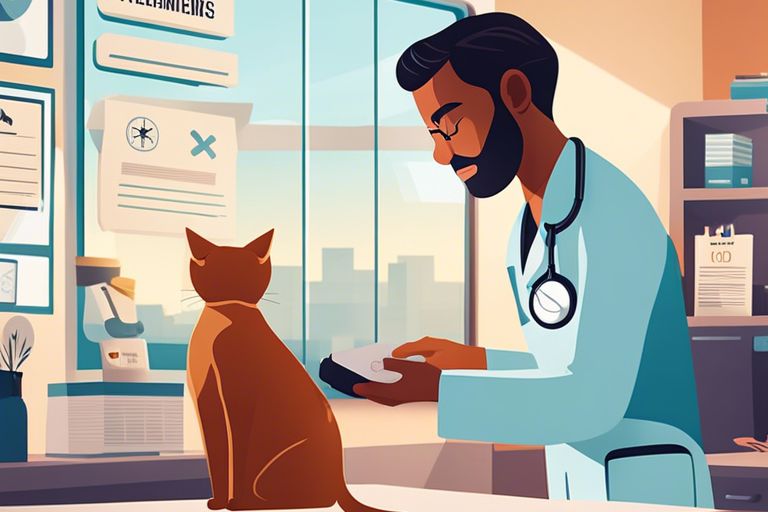Many cat owners often wonder about the common health issues that their feline companions may face. From dental problems and hairballs to urinary tract infections and obesity, there are several ailments that can affect your cat’s well-being. It is crucial to be aware of these health issues to prevent them from occurring or to seek prompt treatment if necessary. In this blog post, we will discuss some of the most common health issues in cats, their prevention methods, and available treatments to keep your furry friend happy and healthy.
Nutritional Health and Diet
Obesity in Cats: Risks and Prevention
For optimal health in cats, maintaining a healthy weight is crucial. Any cat that is overweight is at risk for various health issues such as diabetes, arthritis, and heart disease. To prevent obesity in cats, it’s necessary to provide a balanced diet and ensure they get enough exercise to keep them active and at a healthy weight.
Essential Nutrients and Vitamins for Feline Well-being
Cats require a specific balance of necessary nutrients and vitamins to support their overall well-being. Cats need protein for muscle development, amino acids for healthy fur, and vitamins such as A, D, and E for proper growth and immune function. Ensuring your cat’s diet includes these necessary nutrients is crucial for their health and longevity.
Prevention is key when it comes to providing necessary nutrients and vitamins for your cat’s well-being. Make sure to offer a high-quality cat food that meets their nutritional needs and consider supplementing with vet-approved vitamins if necessary. Consulting with a veterinarian can help you create a diet plan tailored to your cat’s individual needs to ensure they receive all the necessary nutrients for optimal health.
Infectious Diseases in Cats
Feline Immunodeficiency Virus (FIV) and Feline Leukemia Virus (FeLV)
Some cats may be at risk for acquiring serious infectious diseases such as FIV and FeLV. FIV weakens the immune system, making affected cats vulnerable to other infections. FeLV, on the other hand, can cause various health issues including anemia, lymphoma, and other secondary infections.
Preventative Measures and Vaccinations
To protect your feline companion from infectious diseases like FIV and FeLV, it is crucial to adhere to proper vaccination protocols recommended by veterinarians. Regular testing for these diseases, especially for outdoor or multi-cat household cats, can help in early detection and management.
Another important aspect of preventative care is to ensure your cat stays indoors to minimize exposure to infected cats and vectors that can transmit diseases. Additionally, providing a balanced diet, regular exercise, and a stress-free environment can also boost your cat’s immune system and overall health.

Chronic Conditions and Age-Related Health Issues
Kidney Disease and Management Strategies
Management of kidney disease in cats involves a combination of therapies aimed at supporting kidney function and managing symptoms. This includes a renal-friendly diet, adequate hydration, and regular veterinary check-ups to monitor the progression of the disease. Medications may also be prescribed to help manage symptoms such as high blood pressure or anemia. Early detection and proactive management are key to maintaining your cat’s quality of life when dealing with kidney disease.
Arthritis in Cats: Identifying and Alleviating Discomfort
Arthritis is a common age-related condition in cats that can cause stiffness, discomfort, and reduced mobility. Signs of arthritis in cats may include reluctance to jump, decreased activity, or changes in grooming habits. To alleviate discomfort, providing soft bedding, gentle exercise, and joint supplements can help improve their quality of life. Consult with your veterinarian for a tailored treatment plan that may include pain management medications or physical therapy to support your arthritic cat.
Issues such as kidney disease and arthritis are prevalent in aging cats and require proactive management to ensure a good quality of life. By understanding the signs, symptoms, and treatment options for these chronic conditions, you can help your feline companion live a comfortable and happy life well into their senior years.

Behavioral and Mental Health
Stress and Anxiety: Recognizing the Signs
To ensure the well-being of your feline companion, it is crucial to be able to recognize signs of stress and anxiety in cats. Common indicators include excessive meowing, hiding, aggressiveness, urine spraying, or changes in eating habits. It’s imperative to address these signs promptly to prevent further behavioral problems.
Addressing Behavioral Issues Through Environmental Enrichment
Addressing behavioral issues in cats through environmental enrichment is a proactive approach to promote their mental and physical well-being. Providing engaging toys, scratching posts, perches, and interactive feeding puzzles can help stimulate their natural instincts and prevent boredom. Rotating and introducing new enrichment activities regularly can keep your cat mentally stimulated and improve their overall behavior.
Behavioral enrichment is crucial for cats as it not only prevents behavioral issues but also enhances their quality of life. By creating a stimulating environment that mimics their natural habitat, cats are less likely to exhibit destructive behaviors or excessive stress. Investing time and effort in enriching your cat’s surroundings can lead to a happier and healthier feline companion.
Final Words
To wrap up, it is vital for cat owners to be aware of the common health issues their feline companions may face, such as obesity, dental problems, and urinary tract issues. By maintaining a healthy diet, providing regular exercise, and scheduling routine veterinary check-ups, many of these health concerns can be prevented or managed effectively. Additionally, being attentive to any changes in behavior or physical symptoms can help catch potential issues early on. Note, your cat’s health is directly impacted by the care and attention you provide, so staying informed and proactive is key to ensuring a long and happy life for your beloved pet.




